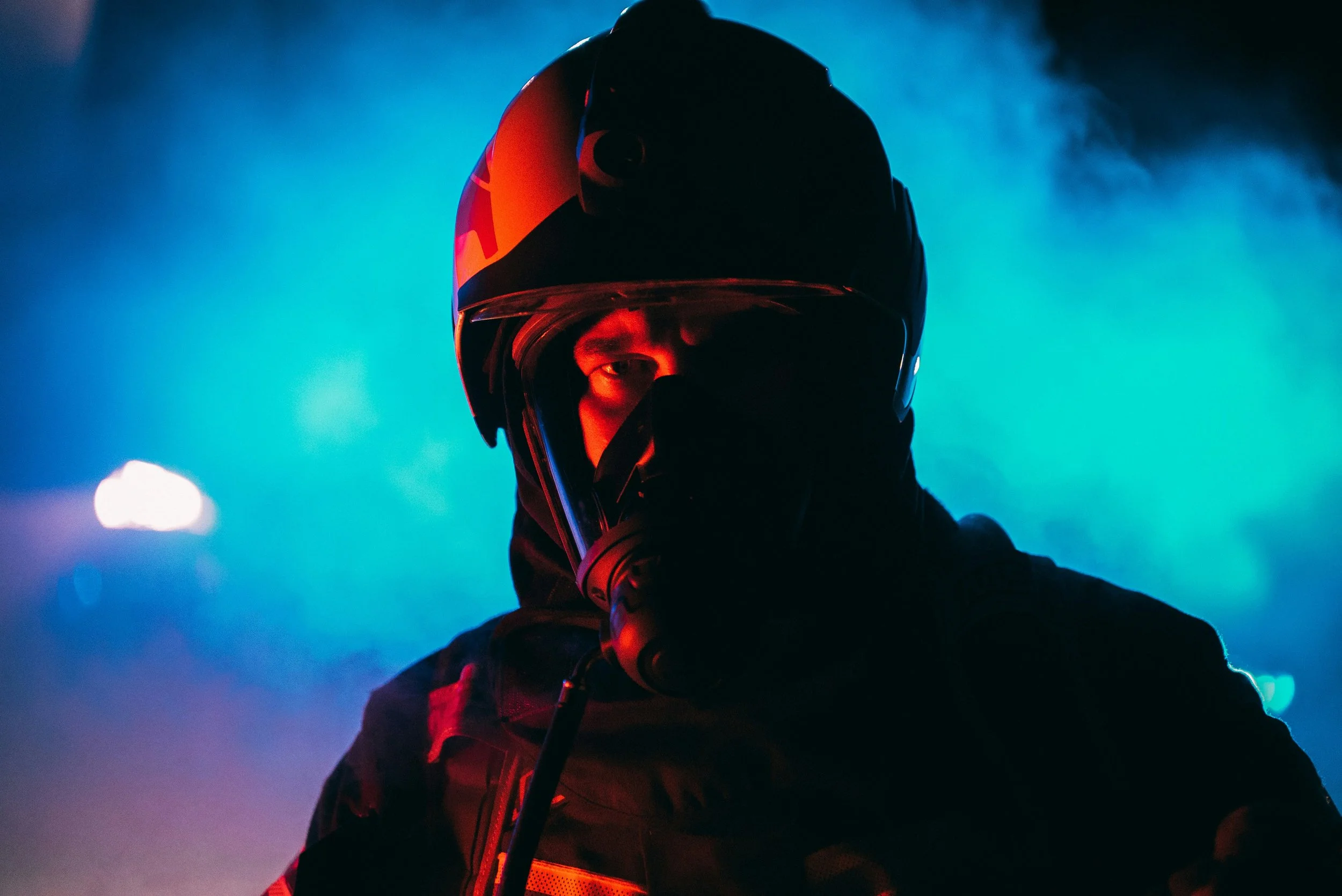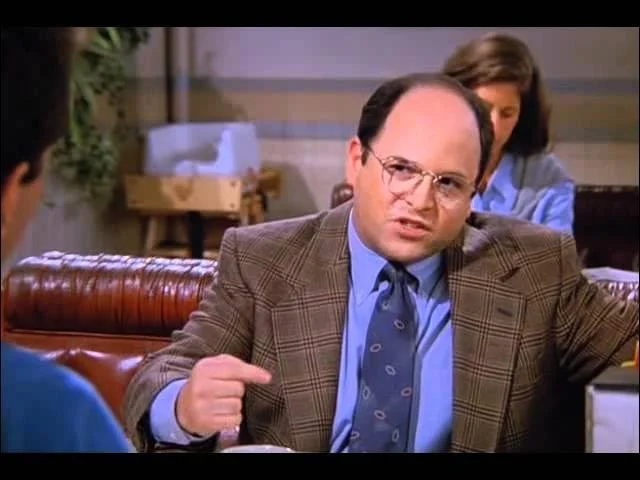
Gifts and Strengths of Six
We can look at the gifts and strengths of type Six with appreciation for the Sixes in our life and as something we can develop in ourselves. Ideally, we want to have flexibility and be able to access the gifts and strengths of all nine personality types when they are called for in the situation.
The gifts and strengths of each type are found at the healthy levels of the personality. Here the person is closer to their essence and the gifts and strengths express the essential quality. For the Six, this means their sensitivity to guidance and trust underlies their strengths.
Warm, Engaging, Egalitarian
Sixes are the “salt of the earth”. They have a down to earth, straight-shooter quality that is very engaging. They also have a very egalitarian nature- no airs, no angles and are open to others without regard to status.
Sixes like to form and work on teams of equals. They are wary of “authority”, especially if it is abused or not legitimate, and are allergic to “bullshit”. Organizations have been moving towards flattened management structures, self-organizing teams and new ways to accomplish work, engage people and so on. This is naturally how Sixes prefer to work and always have. The Six’s natural dislike of hierarchy heralds the shifting paradigms we are moving through today, not just at work.
Below this warm, engaging and egalitarian style is an authenticity- what you see is what you get with Sixes. In a culture that seems to reward puffed up images, “embellished resumes” and even outright lies, the Six is a breath of fresh air.
Reliable, Loyal, Brave
Healthy Sixes are solid, trustworthy and reliable. Sensitive to what can’t be trusted in others, they are inherently trustworthy themselves. It’s as if their radar for what can’t be relied on “out there” causes them to value reliability and they go about creating it in their world.
Since being honest, reliable and trustworthy is in their basic nature, Sixes offer this quality generally towards everyone. It is another aspect of their down-to-earth, straight shooter personality- they are not different in different situations. This quality is in the meaning of being trustworthy if you reflect on it- it is fundamental and not conditional.
Although they are generally kind and warm, Sixes reserve their hallmark quality of loyalty for those who have earned their trust. If you have a Six as your friend you know that they will give you the shirt off their back, they will go to any lengths to love and protect you. This loyalty is not offered to everyone- you must be chosen to be part of the Six’s circle of trust. This selective process applies not only to people but to the causes, groups and work to which the Six commits.
In this sense, the Six strength of being loyal is based on a choice and commitment - deciding what to be loyal to is part of the strength. The Six in all of us can appreciate this process as we navigate life- who and what deserves our loyalty and commitment? Some other types are more responsive to external pressures, rewards and attention, but the internal compass of the Six is a trust filter.
The Six qualities of loyalty and reliability also require persistence and steadfastness, or follow-through. To commit means to not waver or quit when the going gets tough. Here we begin to understand the connection to being brave. Commitment and loyalty often require the courage to persist in the face of difficulty. Remembering that fear underlies the Six, we now see how Six embodies the true meaning of courage- they persist despite fear.
Let’s look at a couple of exemplars from popular culture who reflect this fear/courage energy.
Sara Bareilles the well-known singer, composer and actor may be a Six- she has spoken of her fear and anxiety and is famous for songs like Brave. Here is something she said in a podcast with Glennon Doyle on October 20, 2022:
I was on tour one time in Australia and I was having a real shit show of a time and a lot of anxiety. And I was in a bookstore and I saw this book called Feel the Fear and Do It Anyway. I felt so dopey. I was reading this book at lunch covering the edges, like “Feel the fear and do it anyway!”
But it became my mantra for a little while because I was having these really obsessive thoughts that if I left the hotel I’d get lost or I wouldn’t be able to find my way back. It’s things that are not attached to reality in any way. It has stayed with me where I’m like, “You can be scared and do the fucking thing.” You can just let fear be a passenger and not let it stop you from your life.
Here are some of the lyrics from her song A Safe Place to Land, which she performs with John Legend. Note the vivid description of utter fear, the leap of faith and the call to be the light:
Imagine yourself in a building
Up in flames being told to stand still
The window's wide open
This leap is on faith
You don't know who will catch you
Maybe somebody will
The ocean is wild and over your head
And the boat beneath you is sinking
Don't need room for your bags
Hope is all that you have
So say the Lord's prayer twice, hold your babies tight
Surely someone will reach out a hand
And show you a safe place to land
Be the hand of a hopeful stranger
Little scared but you're strong enough
Be the light in the dark of this danger
'Til the sun comes up
Another example of Six bravery is King George VI whose story is told in the 2010 movie The King’s Speech, starring Colin Firth.
King George VI (born Albert, called Bertie) ascended the throne reluctantly in 1936 when his older brother Edward famously abdicated to marry Wallace Simpson. Albert was unprepared and, being the younger brother, never expected to be king. The movie focuses on Albert’s stutter which he worked to overcome, and how excruciating it was for him to speak publicly. But Albert was thrust into a huge role he didn’t want, and his stutter was merely one aspect of his reluctance. When he learned of his brother’s abdication, Albert went to London to see his mother, Queen Mary. He wrote in his diary, "When I told her what had happened, I broke down and sobbed like a child."
How remarkable that Albert, George VI, was a successful King who reigned with “quiet, unassuming heroism”. As Wikipedia says, “He became king at a point when public faith in the monarchy was at a low ebb. During his reign, his people endured the hardships of war, and imperial power was eroded. However, as a dutiful family man and by showing personal courage, he succeeded in restoring the popularity of the monarchy”. This captures the Six strength of true courage- unassuming heroism.
“Usually we think that brave people have no fear. The truth is that they are intimate with fear. ”
Trouble-shooter, Vigilant, Skeptic
Because Sixes are vigilant about danger and risk, they are good at predicting what might go wrong. Being good at looking ahead for risks, and handling or reducing them, lends itself to many practical strengths that can be described as “trouble-shooting”. We often think of “visioning” in a positive dreamy way of seeing ideal future scenarios (which we will explore at Seven). Six recognizes the darker future, the risk of what could go wrong, which creates a readiness to handle challenges.
In an organization or at work this might be the Six’s role explicitly- forecasting, predicting and managing risk. If they don’t have this type of role, a Six will still bring the energy of dealing with “what might go wrong” to whatever work they do. With friends and family, Sixes will be responsible and vigilant on their behalf. They might expressly take care of safety- the battery is in the smoke detector, the flashlight is on hand, they might have an emergency preparedness kit or first aid kit ready. Sixes follow the Boy/Girl Scout motto of “Be Prepared”. They might show this in less stereotypical ways, especially women. The kids are ready for school with their lunch packed, their warm jacket, and they are driven there safely.
Sixes often have jobs that directly address danger- firefighter, police, ER doctor and so on. This may seem surprising - why would someone do this work if they are fearful? It has to do with confronting fear. Sixes say that they feel relief when there is a real danger or challenge to push up against.
Unlike other types, there are two ways that the Six personality presents. The first is “phobic”- feeling and showing fear with doubt and anxiety overtly displayed. The other is “counter-phobic” where the personality reacts to the fear by becoming daring, risk-taking and acting assertively towards what feels unsafe. Counter-phobic Sixes can seem similar to Eights and may be mistyped until the underlying fear is recognized. Most Sixes act both ways at times and when faced with a challenge will be more counter-phobic- facing it head on. This is why Sixes are “good in an emergency”.
Pilot Captain Sully who famously ditched his plane in the Hudson River is a Six exemplar. His calm decisions in the emergency saved all lives on board. It is worth reading about his life to get the Six flavour of Captain Sully’s character. Before the crash that made him famous, Sully had investigated many air accidents and worked in the field of aviation safety. His inquiry into a major accident at Los Angeles International Airport "led to improved airline procedures and training for emergency evacuations of aircraft."
Here is a quote from Captain Sully about how he approached being a pilot that exemplifies the strength of Six:
“I realized that flying a plane meant not making mistakes. You had to maintain control of everything.
You had to look out for the wires, the birds, the trees, the fog, while monitoring everything in the cockpit.
You had to be vigilant and alert. It was equally important to know what was possible and what was not.
One simple mistake could mean death.”
~Chesley B. Sullenberger, Highest Duty: My Search for What Really Matters
Interestingly, Tom Hanks played Captain Sully in the movie “Miracle on the Hudson” – probably a Six playing a Six. See also Tom Hanks in Saving Private Ryan- the shaking fear and how he keeps going, his “ordinary guy” character and the loyalty to his men. Also, Castaway- a Six survival story.

Closely related to the strength of vigilance is the Six quality of “skepticism”. The old name for type Six was “The Loyal Skeptic”. In an era of fake news, conspiracy theories, and gaslighting a healthy dose of skepticism is clearly a good thing. Sixes have a kind of alertness to bullshit, a “suspicious mind” and they are not naïve.
Hannah Arendt was a political philosopher, writer and Holocaust survivor. In her essay “Personal Responsibility Under Dictatorship” she addressed the value of skepticism on an historic scale. Under Hitler when there was a “total moral collapse of respectable society”, she said that those who hold fast to moral norms are not reliable- they have the habit of holding fast to norms that can change overnight. “Much more reliable will be the doubters and skeptics, not because skepticism is good or doubting wholesome, but because they are used to examine things and to make up their own minds.”
Buddhist teacher Ken McLeod applied Hannah Arendt’s writing about skepticism to his spiritual practice. He said that because he has repeatedly chosen to work with “what he sees”, he has had “to question not only myself, but everything that I think I know or understand.” He says that, while this is not easy, “the qualities that develop in us from questioning deeply” are the same qualities that make it possible for us to “exercise personal responsibility even when it means that we may pay for it with our welfare, our well-being, or even our lives”. (tricycle.org, July 14, 2022)
Not accepting things at face value, questioning “everything I think I know or understand” are Six strengths, and McLeod is describing how this has supported his steadfast persistence on his spiritual path.
“One of the painful things about our time is that those who feel certainty are stupid, and those with any imagination and understanding are filled with doubt and indecision.”
Humour
Here is a fun strength of Six- they have a great sense of humour and are often very funny.
Riso-Hudson use the word “wry” to describe the Six sense of humour and explain that the source of the humour is their ability to see the gap between appearances and reality. Seeing the absurdity and bullshit basically.
Six comedians come in the phobic and counter-phobic styles, and are also often simply warm and genial humourists. Phobic humour uses the anxious aspect of Six explicitly. The nervous, neurotic character such as Woody Allen (can we still appreciate his humour?) points out absurdities and verbalizes his angst.
George Constanza is a nervous, neurotic Six character.
“I am plagued by doubts. What if everything is an illusion and nothing exists? In which case, I definitely overpaid for my carpet. If only God would give me some clear sign! Like making a large deposit in my name in a Swiss bank.”
Larry David, the creator of Seinfeld and Curb Your Enthusiasm is a nervous Six.
Counterphobic Six humour has a strong, direct message. Although funny, this humour tackles politics and social issues. Lenny Bruce and George Carlin, probably both Sixes, were early social critics who used humor to confront society and both ended up in jail or court.
“That’s why they call it the American Dream, because you have to be asleep to believe it.”
Current comics who might be Sixes- Wanda Sykes, Dave Chappelle, Trevor Noah, Hasan Minhaj, Jerrod Carmichael- skewer politics and society from the perspective of race, gender, religion, politics and so on. They have the warmth and down-to-earth energy of Six combined with scathing observations and commentary.
“I think the best comedians have that bravery and courage to say, ‘This is what it is. This is unfair; that’s not cool.’”
Lighter comedy is also a Six gift. Many TV hosts are Sixes- Jay Leno, David Letterman, Ellen de Generis, and Jimmy Kimmel for example- there is an “everyman” quality in their relatable humour. Tom Hanks, Jennifer Aniston, Tina Fey, Sandra Bullock and Julia Roberts, all probably Sixes, show the same warm, light style of humour. They are noticeably without airs as well as funny.
“This week, penny collector Gene Sukie went to the bank and cashed in 10,000 pounds of pennies he had collected over 34 years, which were worth over 14,000 dollars. And, of course, I was in line behind him.”
Of course, not all Sixes are comics, but they share a way of seeing the humor in life that seems to address and relieve the angst we all feel.
Go watch a funny movie or clips by any of these comics to celebrate the power of humor.


















